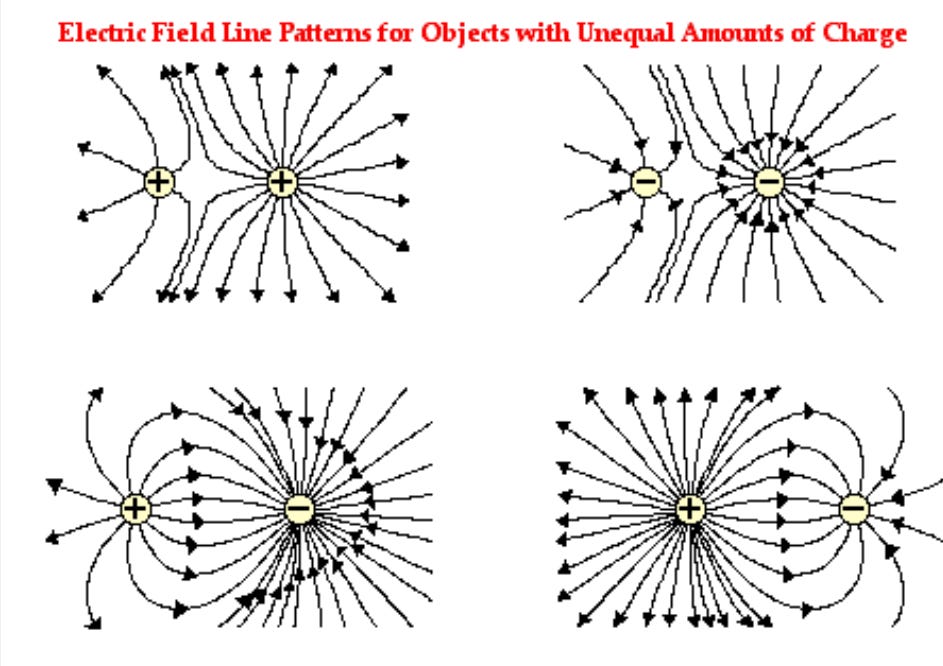How Other People's Physiology Affects Our Emotions and Internal States
Why We Need to Be Careful of the Company We Keep
Introduction
I explore how the physiological states of other people’s bodies, and the signals they can give off, can have profound effects on our own physiology and psychology, including posture, emotional states, cardiovascular. endocrine, immune, and nervous systems. This is especially the case for people with chronic illness, suffering from trauma, or who are under chronic stress, who tend to have weakened defences against these influences of other people’s states, and hence tend to be involuntary absorbers of other people’s “energies”.
The Effect of Observing Other People’s Movement
I read an interesting scientific journal article: "Emotion regulation through execution, observation, and imagery of emotional movements". Here are some relevant excerpts on the parts I found particularly interesting.
“... emotions are generated by conveying the current state of the body to the brain through interoception and proprioception [internal sense of our own body]…furthermore, because imagery and observations [of people moving] are thought to activate the same mirror-neuron network engaged during motor execution, they might also activate… similar emotional effects [in the observer]. Therefore, we measured the effects of… imagery and observation of whole-body dynamic expressions of emotions (happiness, sadness, fear)… all three tasks enhanced the corresponding state [in the observer]."
"In summary, our study demonstrates that… observation and imagery of whole body emotional movements can… be used to assist in regulation of one’s own emotions and recognition of others’ emotions.”
So what the authors found that was just the act of observing the dynamic movements in people around us can influence our own emotional states, based on the emotions the movement expresses. This seems to have some relationship to the concept of neuroception, the subconscious detection of cues of safety or threat/danger not only from our own internal states through interoception and proprioception, but also from signals emanating from other people around us, which can radically change/influence/dictate our own cardiovascular, endocrine, immune and nervous system states.
This above research predicts that regularly watching people engaged in happy or joyous movement, perhaps optimized by combining with uplifting music, could have significant beneficial and therapeutic effect. I am thinking of expressive dancing in particular. Indeed, this may be why shows likes Strictly Come Dancing/Dancing with the Stars remain so very popular - we get to feel something of what the people expressing themselves through movement are feeling, and so we get heavily emotionally invested.
Conversely, this research suggests the abnormal lack of movement, slow and rigid/stiff motions, and tremors which those of us with movement disorders may display, might have negative effects on healthy people around us. Indeed, this may explain, but in no way excuse, the tendency for some people to avoid us, or to at least be clearly very uncomfortable in our presence. Indeed, I even find myself that I can become more symptomatic when in the presence of other people with Parkinson’s, as my body resonates in sympathy with the movement problems and symptoms that are on display.
To test this idea out for oneself, try watching the man making very strange jerky movements in the video below, showing an example of Japanese Butoh performance. Most people report that watching this creates very uncomfortable bodily sensations, and negative feelings, and find it difficult to watch all the way to the end.
A Pandemic of Poor Posture and Breathing Dysregulation?
The above findings on the influence of observing other people’s bodies makes me wonder if the current epidemic of postural collapse is somewhat viral? In other words, if we are surrounded all day by people who display hunched up postures and have much reduced motions and movement, e.g. working in an office environment, or being in the presence of teenagers who are looking down at their phones all day, does our neuroception then subconsciously interpret all this as bodily cues of grief, sadness, depression or fear in everyone around us?
If so, is this then impacting our own emotions and biasing us to these types of feeling too, which then makes our own posture more collapsed as our bodies slump to express the entrained lowering of mood, thus spreading the problem? Perhaps we need to be mindful of our own posture and lack of movement, not only as it impacts so negatively on our own heath, but also, by this proxy, on our loved ones and the people around us.
We can ask similar questions about whether observing the breathing patterns of others subconsciously influences our own too? Do we tend to entrain and the adopt patterns of poor breathing from people we are present with, whether mouth breathing, chest and neck breathing, hyperventilating, or shall and fast “anxious breathing”? If so, do we then begin to influence the breathing patterns of others around us, spreading breathing dysregulations in a viral way?
The Possible Influence of Electromagnetic Fields Generated by Other Humans
Our cells, organs, particularly our brain and heart, muscles, nervous system, and even the flowing iron in our blood, all generate electromagnetic activity which can effect other parts of our body. All this activity results in signature overall electric and magnetic fields, that extend outside of our own bodies, and indeed can be measured, and hence influenced, from the outside, for example by ECG, EEG, and magnetoencephalography (MEG) and magnetocardiography (MCG).
The forms of these fields are likely to vary strongly with the state of our cardiovascular, endocrine, immune and nervous systems. For example, the signature electric fields we generate will depend markedly on our nervous system state, e.g. whether our nervous system is in relaxed, socially engaged, fight-or-flight or freeze states, as well as on our posture and body shape, whether we have a disease or are healthy, our heart rate, and our thoughts and emotions via brainwave frequencies.
Conversely, we know that quite weak external electro-magnetic fields can strongly influence our internal states. TMS and PEMF therapies, for examples, can change our brain states and affect our cardiovascular, nervous, immune and endocrine systems.
Whenever two or more objects generating electrical fields approach one another, the electrical fields of both are changed to create an entirely new configuration field from the combination.
In a similar way, when two or more people approach each other, and especially come into contact with each other, i.e. touch, it is likely the electro-magnetic fields around them, and hence within them, will be changed by their combination. This new configuration will likely affect the inner biological workings of all those who are proximate.
Other Ways Other People Can Affect Our Internal States
A myriad of other possibilities for how being in the presence of specific people can affect us in conscious or subconscious way include:
tone, melodic content, volume of voice;
temperature, body heat, infrared emissions;
smell, pheromones;
triggering of body memories;
making sounds, playing music or singing.
Why Traumatized People are Affected More
My experience and observations is that people who have chronic illnesses with symptoms which have their origins in Adverse Childhood Experiences, or folks who are suffering due to Developmental Trauma, are more prone to being subconsciously or involuntary affected by the presence of particular types of people. In the book “Healing Developmental Trauma” by Dr Laurence Heller and Aline LaPierre, from which the following list is adapted, the authors provides a clear explanation of this in terms of what they refer to as “damaged energetic boundaries”.
“
Our boundaries (personal, physical and energetic spaces) buffer us from outside world and regulate our interface with other people.
An everyday example of "boundary impingement" is someone standing too close, and wanting distance from that person.
Just like skin marks the boundary between the body's inside and outside, our energetic boundaries defines our wider personal space.
Intact and healthy energetic boundaries help us feel safe and set appropriate limits on interactions.
Analogous to a cut in the skin being painful, energetic boundary impingement, penetration or rupture may feel threatening, physically uncomfortable or create mental anguish.
Traumatic events that occur before we can orient to the danger can leave us with internal sense that danger can from anywhere, anytime, making us hypervigilant.
With early development trauma, boundaries never form adequately in the first place or are severely compromised.
With compromised boundaries, we may feel easily overwhelmed, such as feeling flooded by environmental stimuli and human contact, or not knowing the difference between self and other people, or between internal and external experiences.
Individuals with breached boundaries due to trauma distance and isolate themselves from other people, as a protective mechanism.
There is a strong correlation between environmental sensitivities, e.g. to light, sound, electric fields, smells, touch, and ruptured boundaries.
People with compromised energetic boundaries tend to have compromised physical and internal boundaries too, such as leaky gut, food and chemical insensitivity and allergy.
As people heal from trauma and restore healthy boundaries, they report decreases in level of sensitivities, intolerances and allergies too.
“
Summary
The conclusion of the story is that we need to choose wisely the company we keep, for the sake of our own health and wellbeing. This is in no way a recommendation to isolate or cut ourselves off, as loneliness is the biggest predictor of ill health of all, and positive social engagement is vital, Instead, it is to surround ourselves with people who give our bodies nourishing positive interactions, while minimizing or setting limits on exposure times to people in our lives who are toxic to our system, or to make them less toxic by repairing the ruptures in our relationships.
~
My online course The Nervous System in Chronic Illness, enrolling now, has many more tips for stress and symptom reduction, and ways to improve quality of life:






I watched the Butoh performance and what I noticed was that the music made me feel much more uncomfortable than his movements. When I turned down the volume I could enjoy those amazing movements that look like jerks but there’s such a huge of amount of control and precision in them. Wow.
As to the music it fits Steven Porges’s theory that high/low pitch tones trigger the sympathetic NS.
I so related to the trauma relevance to deep feeling. ACE's, mirror neurons, need to honor boundaries...all have highly impacted my life. I've noticed for myself that even hearing someone talk until they are running out of breath for their utterance gets me deep breathing. Also seeing someone hunched over gets me standing/ sitting up straighter- almost as if to offer them relief, yet I feel I am sensing the constraints myself. I've also noticed always being impacted when someone in my family is watching "funny videos" when accidents or falls occur. Not so funny, but I always find myself looking away. I'm always wondering how injured they wound up! Not my idea of entertainment. Another great thought provoking and relatable post Gary.